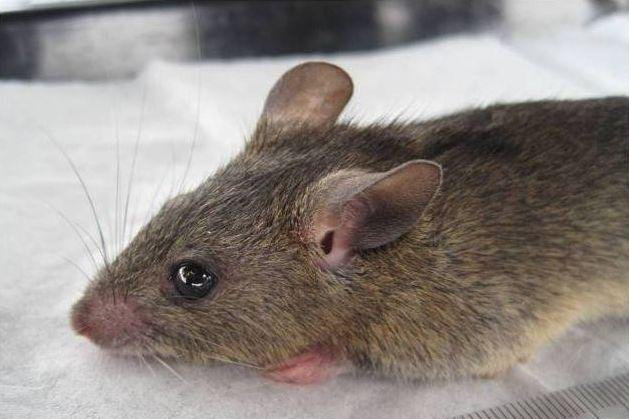Mastomys rats spread Lassa fever to humans, mainly in West Africa. A new vaccine effectively protected people from Lassa fever and rabies -- another illness predominant in Africa -- in a trial involving mice and guinea pigs. Photo courtesy of
National Health Institute
Oct. 11 (UPI) -- A new vaccine showed preclinical promise at effectively protecting people from Lassa fever and rabies in a study involving mice and guinea pigs.
These two viruses have been designated as a major health burden in West Africa by the World Health Organization. Lassa is mainly spread to humans by Mastomys rats, while rabies is caused by bites or scratches from infected dogs.
Scientists at Thomas Jefferson University in Philadelphia, the University of Minho in Braga, Portugal, the University of California San Diego, and the National Institute of Allergy and Infectious Diseases published the findings Thursday in the journal Nature Communications.
The investigational vaccine, called LASSARAB, includes inactivated genetic material from Lassa virus and a rabies virus vector.
These proteins prompt an immune response against both viruses. No vaccine currently has been approved to treat Lassa, which is a viral hemorrhagic fever. Effective rabies vaccines and post-exposure shots are available for rabies, but many African nations don't have access to the treatment.
"The need to develop vaccines against emerging viral pathogens became starkly apparent during the 2014-2016 West Africa Ebola epidemic," the authors wrote. "Indeed, reaffirming the urgency and importance of preventive measures, an unprecedented major LF surge, with 25.4 percent high case fatality rate, is currently unfolding in Nigeria."
Lassa was identified in 1969 when two missionary nurses died from it in the town of Lassa in Nigeria.
An estimated 100,000-300,000 humans are infected annually with Lassa, mostly in Africa. Around 80 percent of exposures are mild and go unreported but serious symptoms of lassa include severe bleeding and shock, according to WHO. The mortality rate for patients hospitalized with severe cases of Lassa fever is 15 percent.
The antiviral drug ribavirin can be an effective treatment for Lassa fever if given early on in the course of clinical illness.
People contract Lassa virus through infected Mastomys rats, which are common in West Africa, as well as exposure to an infected person's bodily fluids.
For rabies, 95 percent of the estimated 59,000 human rabies deaths per year occur in Africa and Asia, according to WHO.
In mice and guinea pig studies, LASSARAB was administered with GLA-SE adjuvant -- an immune response-stimulating protein -- that elicits antibodies against Lassa virus and rabies.
Also, the vaccine protected guinea pigs from Lassa fever after being exposed to the virus 58 days after vaccination.
Researchers next want to evaluate the vaccine in nonhuman primates before human clinical trials.















